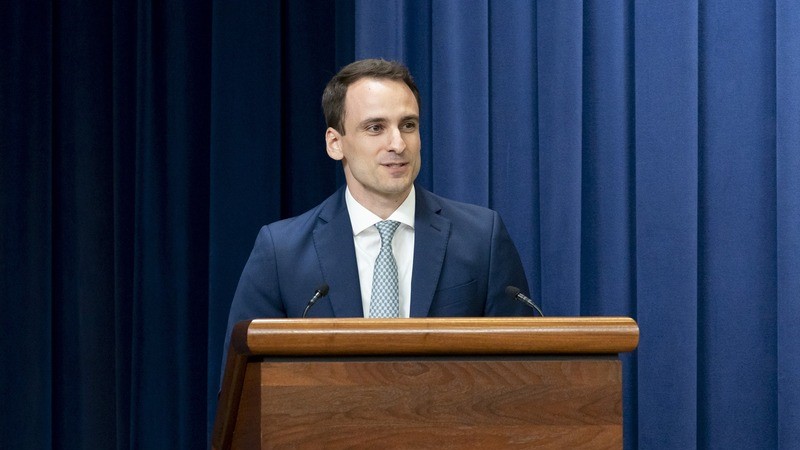
White House Office of Science and Technology Policy (OSTP) Director Michael Kratsios on Wednesday outlined the Trump administration’s five-point plan for advancing quantum technology, declaring that U.S. leadership in the field is a “national security imperative.”
Kratsios addressed the Quantum World Congress in Tysons, Va., on Sept. 17 via video. He was unable to attend in person as he is currently accompanying President Donald Trump on a visit to the United Kingdom.
The OSTP director said that the Trump administration is renewing a federal focus on quantum after what he described as “stagnant” funding and progress under the Biden administration.
“As we work to fulfill the president’s mandate for quantum supremacy, the White House has five major priorities. First, we need innovation programs to grow the domestic quantum workforce, while still attracting global talent to the U.S. ecosystem,” Kratsios said.
He noted that technological progress and scientific discovery do not happen without a strong tech workforce.
“Second, we need a concerted effort to push quantum technologies out of the laboratory and into commercialization, while continuing support for basic research,” Kratsios said.
“Third, we need to catalyze and incentivize the ecosystems producing enabling technologies, the lasers, materials, and advanced fabrication systems that form the component technologies needed for further growth and commercialization,” he added.
The fourth priority, he said, is to continue to develop “good working relations with our allies and international partners.”
Kratsios said his office has regularly convened members of the international quantum community and has led multiple delegations to international quantum discussions.
Notably, the trip he is accompanying President Trump on this week to the United Kingdom began with the announcement of a $42 billion Tech Prosperity Deal. The agreement focuses on developing the fastest-growing technologies, including quantum, AI, and nuclear.
Under the deal, the two countries will work together to develop revolutionary quantum computers. They will also establish a task force comprised of the United Kingdom and the United States’ top researchers to accelerate quantum breakthroughs.
“Fifth, and finally, we need to protect the development of sensitive research and applications,” Kratsios continued. “We know adversaries will try to steal our technology and use it against us. We can find common sense measures, working with our partners, that empower researchers to secure their work in a manner that may not hinder [their] ability to out-innovate competitors.”
“This administration is excited to renew government focus on quantum preeminence,” he said.
In a separate video message at the Quantum World Congress, Sen. Mark Warner, D-Va., stressed the importance of U.S. leadership in quantum technology, calling it “our generation’s Sputnik moment.”
“It’s not a race we can afford to lose,” Warner said. “That’s because quantum technology is a really foundational technology. It will transform our national security, economic competitiveness, and critical infrastructure. Quantum technology has the potential to revolutionize everything.”
The senator pledged his commitment to support the U.S. quantum ecosystem “through legislative action and increased federal collaboration.”
